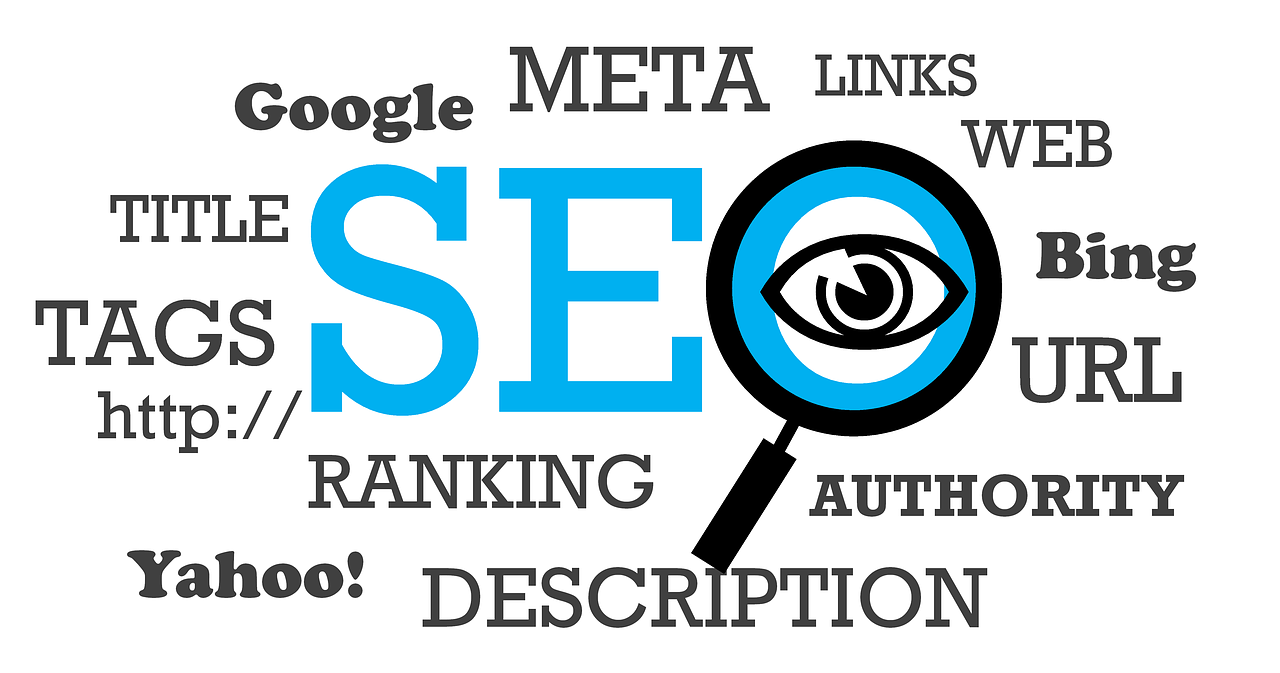
Startup SEO Strategy for 2025: How to Rank #1 on Google and Drive Sustainable Growth
Want to rank #1 on Google? In 2025, having a effective Startup SEO Strategy is more critical than ever. In the rapidly evolving digital landscape of 2025, startups face a unique challenge: standing out in an overcrowded online marketplace. Search Engine Optimization (SEO) has become a critical tool for startups, offering a cost-effective way to increase visibility, attract targeted traffic, and gain a competitive edge. With the dominance of Google as the primary search engine, ranking on the first page is no longer optional—it’s essential.

SEO enables startups to build a strong online presence by optimizing their websites and content for both search engines and user intent. By aligning their strategies with the latest algorithm updates and leveraging organic search, startups can connect with their ideal audience and foster sustainable growth. As competition intensifies, mastering SEO is one of the most reliable ways for startups to drive brand awareness, acquire customers, and establish themselves as industry leaders.
Key Benefits of SEO for Startups in 2025:
- Increased Visibility: SEO ensures your startup is discoverable in search results, increasing exposure to potential customers.
- Cost-Effective Growth: Unlike paid advertising, organic search provides a sustainable and budget-friendly way to scale.
- Adaptability to Trends: Keeping up with algorithm updates and user preferences ensures long-term competitiveness.
- Targeted Traffic: SEO attracts users actively searching for your product or service, resulting in higher-quality leads.
For startups aiming to rank #1 on Google in 2025, understanding the power of SEO and implementing effective strategies is crucial to their success. This article will guide you through the essentials of a winning SEO strategy tailored for startups, helping you achieve lasting results.
Understanding the SEO Landscape in 2025
The SEO landscape in 2025 is defined by rapid advancements in technology, shifting user behaviors, and Google’s continuous updates to its algorithm. For startups aiming to implement a winning Startup SEO Strategy, understanding these key trends is essential to remain competitive and achieve top rankings.
Key Trends in Google’s Algorithm
- AI-Driven Search: Artificial intelligence (AI) plays a central role in Google’s search algorithm, with tools like RankBrain and Multitask Unified Model (MUM) enhancing search accuracy and understanding complex queries. AI in SEO now prioritizes user intent, favoring content that provides value and directly addresses searchers’ needs.
- User Intent and Search Experience: Google has shifted its focus from keywords to understanding the context and purpose behind searches. Startups need to optimize their content for intent-based searches, such as informational, navigational, and transactional queries, to match what users are genuinely looking for.
- Mobile-First Indexing: As mobile usage continues to dominate, Google’s mobile-first indexing ensures that a website’s mobile version is the primary consideration for ranking. Startups must prioritize responsive design, fast load times, and seamless navigation to remain competitive.
- Core Web Vitals: Page experience metrics like load speed, interactivity, and visual stability are critical for SEO success. Websites that offer smooth user experiences are rewarded with higher rankings.
- Zero-Click Searches and SERP Features: Featured snippets, People Also Ask boxes, and other SERP features are becoming more prevalent, reducing click-through rates but increasing brand visibility. Structured data and schema markup are essential for startups to capitalize on these opportunities.
How Startups Can Adapt to SEO Trends in 2025
- Leverage AI-powered tools to optimize content creation and keyword research.
- Focus on natural language processing (NLP) to align with how Google interprets queries.
- Implement schema markup to improve visibility in rich snippets and other SERP features.
- Prioritize mobile-first SEO strategies to cater to the growing mobile audience.
- Optimize for zero-click searches by providing concise and actionable answers to user queries.
By aligning with these critical trends, startups can not only keep up with the evolving SEO landscape but also carve a niche for themselves in a competitive digital marketplace.
Keyword Research for Startups
Keyword research forms the backbone of any successful Startup SEO Strategy, and for startups targeting niche markets, it’s even more critical to uncover keywords that align with their audience’s specific needs. Identifying low-competition, high-intent keywords can help startups maximize their visibility and attract qualified traffic while working within tight budgets and limited resources.

Finding the Right Keywords for Niche Markets
- Focus on Long-Tail Keywords
Long-tail keywords are more specific, less competitive, and often indicative of high purchase intent. For example, instead of targeting a generic term like “marketing software,” a startup might focus on “marketing software for small businesses.” - Leverage SEO Tools
Utilize tools like Google Keyword Planner, SEMrush, Ahrefs, and Ubersuggest to find keywords with low difficulty and sufficient search volume. Tools like AnswerThePublic and Google Trends can also provide insight into user questions and trending topics in your niche. - Analyze Search Intent
Understand whether a keyword reflects informational, navigational, or transactional intent. Matching your content to the right intent increases the likelihood of conversions. For example, “how to optimize a startup website” (informational) vs. “best SEO tools for startups” (transactional). - Competitor Analysis
Research competitors in your niche to identify keywords they rank for and uncover potential content gaps. This helps target keywords that competitors may have overlooked or under-optimized for. - Explore Niche-Specific Opportunities
Target keywords that cater to your unique value proposition or underserved segments in your industry. For instance, a fintech startup might focus on keywords like “secure online payments for small businesses” rather than broad terms like “payment solutions.”
Steps for Effective Keyword Research for Startups
- Brainstorm Seed Keywords: Start with terms directly related to your business, products, or services.
- Expand Using Tools: Use keyword research tools to discover variations, long-tail opportunities, and related terms.
- Evaluate Keyword Metrics: Prioritize keywords with low difficulty, high intent, and manageable search volume.
- Match Keywords to Content: Align your findings with specific content types, like blog posts, product pages, or FAQs.
- Monitor and Refine: Regularly track rankings and performance, adjusting your strategy as needed.
Benefits of Targeting Niche Keywords
- Lower competition means faster results for startups with limited resources.
- High-intent keywords attract users more likely to convert.
- Focusing on a niche builds authority and trust within a specific market.
By following these techniques and leveraging the right tools, startups can develop a keyword strategy tailored to their niche, ensuring they reach their target audience efficiently and effectively.
Building a Strong On-Page SEO Foundation
A solid on-page SEO foundation is crucial for startups aiming to rank higher on Google and deliver exceptional user experiences. By optimizing website content for both search engines and users, startups can ensure their pages are discoverable, engaging, and relevant to their target audience. This section will outline the essential elements of on-page SEO and how to implement them effectively.

Key Components of On-Page SEO for Startups
- Meta Tags and Descriptions
- Why They Matter: Meta titles and descriptions are the first impressions your website makes on search engines and users.
- Best Practices: Write concise, keyword-rich meta titles (50–60 characters) and descriptions (150–160 characters) that include your primary keywords while encouraging clicks.
- Example: A SaaS startup might use: “Affordable Project Management Software | Boost Team Efficiency.”
- Headers and H1 Hierarchy
- Why They Matter: Proper header structure helps search engines understand your content and improves readability for users.
- Best Practices: Use one H1 tag per page to define the main topic, followed by H2s, H3s, and so on, to break down subtopics logically.
- Content Optimization
- Why It Matters: Search engines prioritize content that is informative, engaging, and relevant to user queries.
- Best Practices: Include primary and related keywords naturally, use bullet points for readability, and ensure content answers user questions directly.
- Bonus: Utilize internal linking to guide users to related content and improve site navigation.
- Mobile Optimization
- Why It Matters: Google’s mobile-first indexing means your website must perform well on mobile devices to rank competitively.
- Best Practices: Ensure responsive design, fast load times, and a clean layout that works seamlessly across all screen sizes.
- Example: Optimize navigation menus and prioritize clickable elements for touchscreens.
- Structured Data and Schema Markup
- Why It Matters: Structured data helps search engines understand your content better and increases the likelihood of rich snippets appearing in search results.
- Best Practices: Implement schema markup for key elements like reviews, FAQs, and product details to improve visibility in SERPs.
- Alt Tags and Image Optimization
- Why They Matter: Alt tags improve accessibility and help search engines index your images.
- Best Practices: Use descriptive alt text that includes keywords and compress images to improve page speed.
Steps to Strengthen Your On-Page SEO Foundation
- Conduct an on-page audit to identify gaps (e.g., missing meta tags or broken internal links).
- Optimize meta titles, descriptions, and headers using primary and secondary keywords.
- Use tools like Google’s Mobile-Friendly Test to ensure your site meets mobile-first indexing standards.
- Implement structured data for rich snippets using tools like Google’s Structured Data Markup Helper.
- Improve user engagement by creating content that directly addresses user queries and includes multimedia elements like images and videos.
Why On-Page SEO Matters for Startups
- It provides immediate control over how your content appears in search results.
- A mobile-optimized and structured site improves both user experience and rankings.
- On-page efforts are foundational for achieving long-term SEO success.
By building a strong on-page SEO foundation, startups can improve their chances of ranking #1 on Google and create a seamless user experience that drives both traffic and conversions.
Content Marketing for SEO Success
Content marketing is the cornerstone of a successful Startup SEO Strategy, serving as a powerful tool to drive organic traffic, build brand authority, and engage your audience. By creating diverse, high-quality content that aligns with search intent and addresses your audience’s needs, startups can establish themselves as thought leaders while improving their search engine rankings.

Creating Content That Drives Organic Traffic
- Diversify Content Types
- Blogs: Blog posts remain a vital component of any SEO strategy. They provide opportunities to target specific keywords and address user queries in detail.
- Videos: Video content is increasingly favored by Google and users alike. Tutorials, explainer videos, and product demonstrations can significantly boost engagement and time-on-site.
- Infographics: Visual content like infographics is highly shareable and helps break down complex information into digestible formats.
- User-Generated Content (UGC): Encourage reviews, testimonials, and social media contributions to build trust and engagement.
- Focus on Evergreen and Trending Topics
- Evergreen Content: Create timeless resources that remain relevant over time, such as “How-to” guides or industry best practices.
- Trending Topics: Stay ahead of the curve by producing content on emerging trends in your niche. Tools like Google Trends can help identify what’s gaining traction.
- Adopt a Content Cluster Strategy
- Organize content into clusters with a central “pillar” page supported by related articles. This structure improves internal linking and helps search engines better understand your content’s relevance.
- Maintain Consistency
- A consistent publishing schedule not only keeps your audience engaged but also signals to search engines that your website is active and up-to-date. Use editorial calendars to plan content creation and distribution.
Steps for Creating SEO-Friendly Content
- Research and Target Keywords: Use keyword tools to identify high-intent, low-competition keywords relevant to your audience.
- Write, Optimize for Search Engines: Focus on providing value while incorporating keywords naturally into headings, subheadings, and content.
- Enhance Engagement with Multimedia: Include visuals, videos, and interactive elements to improve user experience and dwell time.
- Promote Content Across Channels: Amplify your reach by sharing content on social media, email newsletters, and through partnerships.
- Measure and Refine: Track performance metrics like traffic, bounce rate, and time-on-page to identify what resonates with your audience and refine your strategy accordingly.
Benefits of Content Marketing for SEO Success
- Increases Organic Traffic: High-quality, targeted content attracts users actively searching for solutions your startup provides.
- Builds Authority: Valuable content establishes your startup as an industry leader.
- Boosts Audience Engagement: Engaging, relevant content keeps users on your site longer, signaling value to search engines.
- Drives Long-Term Results: Evergreen content continues to generate traffic and leads well after publication.
By investing in a robust content marketing strategy, startups can drive sustained organic growth, build lasting relationships with their audience, and achieve higher visibility in search engine results.
Building Backlinks and Domain Authority
Building high-quality backlinks is a cornerstone of any successful Startup SEO Strategy. Backlinks from authoritative and relevant websites signal trustworthiness and relevance to search engines, which directly impacts your domain authority and search rankings. For startups, a strategic approach to link building can provide the visibility and credibility needed to compete in a crowded market.
Strategies for Acquiring High-Quality Backlinks
- Guest Posting
- Why It Works: Writing guest articles for established blogs in your niche not only builds backlinks but also positions your startup as an authority.
- Best Practices:
- Target blogs with high domain authority (DA).
- Write value-driven content tailored to the audience of the host website.
- Use natural, relevant anchor text to link back to your site.
- Building Strategic Partnerships
- Why It Works: Collaborating with other businesses or organizations can lead to natural link exchanges and co-branded content.
- Best Practices:
- Identify partners whose audience aligns with yours.
- Co-create content such as webinars, reports, or case studies that both parties can promote.
- Leveraging PR for Backlinks
- Why It Works: Public relations campaigns can secure mentions and backlinks from high-authority media outlets.
- Best Practices:
- Create newsworthy content or announcements, such as product launches or industry reports.
- Use platforms like HARO (Help a Reporter Out) to connect with journalists seeking expert commentary.
- Content That Naturally Attracts Links
- Why It Works: High-quality, shareable content often earns backlinks organically.
- Best Practices:
- Create data-driven articles, infographics, and “ultimate guides” that others will reference.
- Promote your content across social media and email to increase its reach.
- Outreach Campaigns
- Why It Works: Directly contacting relevant sites to request backlinks can be effective when done tactfully.
- Best Practices:
- Personalize your outreach emails.
- Highlight how linking to your content adds value to their audience.
Key Elements of a Successful Backlink Strategy
- Anchor Text Optimization: Use descriptive, keyword-rich anchor text that aligns with the linked page’s content.
- Mix of Link Types: Aim for a natural balance between do-follow and no-follow links.
- Relevance Over Quantity: Focus on backlinks from websites relevant to your industry or niche.
- Monitor Backlink Profile: Use tools like Ahrefs or SEMrush to track your backlinks and disavow harmful links.
Benefits of Building High-Quality Backlinks
- Improves Domain Authority: Backlinks from authoritative sites enhance your domain’s credibility.
- Boosts Organic Rankings: Quality links signal relevance to search engines, helping you rank higher.
- Drives Referral Traffic: Links from well-trafficked sites can bring new visitors directly to your website.
By implementing these backlink-building strategies, startups can improve their domain authority, enhance search visibility, and drive long-term growth. A strategic and consistent approach to link building will ensure your website remains competitive in the dynamic SEO landscape of 2025.
Tracking Performance and Continuous Optimization
Effective SEO isn’t a one-time effort—it’s an ongoing process that requires consistent tracking and refinement. For startups, monitoring SEO performance and staying ahead of competitors are critical to ensuring sustained growth and visibility in search engine rankings. By measuring key metrics with tools like Google Search Console and Google Analytics, startups can make data-driven decisions to optimize their strategies and maximize results.

Tracking Performance and Continuous Optimization
Effective SEO isn’t a one-time effort—it’s an ongoing process that requires consistent tracking and refinement. For startups, monitoring SEO performance and staying ahead of competitors are critical to ensuring sustained growth and visibility in search engine rankings. By measuring key metrics and leveraging the right tools, startups can make data-driven decisions to optimize their strategies.
Why Tracking and Optimization Matter for Startups
- Stay Competitive: Regular tracking ensures you’re aware of competitor movements and can adapt quickly.
- Maximize ROI: Continuous optimization ensures your efforts deliver the best possible results.
- Adapt to Changes: SEO trends and algorithms evolve; monitoring performance helps you stay ahead of these shifts.
By implementing performance tracking and iterative optimization, startups can refine their Startup SEO Strategy, stay competitive in their industry, and achieve long-term success in search engine rankings.
Startup SEO Strategy Success in 2025
Mastering a Startup SEO Strategy in 2025 requires a combination of strategic planning, consistent optimization, and leveraging the right tools. By understanding the evolving SEO landscape, targeting the right keywords, optimizing content, building authoritative backlinks, and tracking performance with tools like Google Analytics and Google Search Console, startups can achieve sustainable growth and rank #1 on Google. Success in SEO is not just about staying visible—it’s about staying relevant, adaptable, and focused on delivering value to your audience. With these strategies in place, your startup is well-positioned to thrive in the competitive digital marketplace of 2025.


